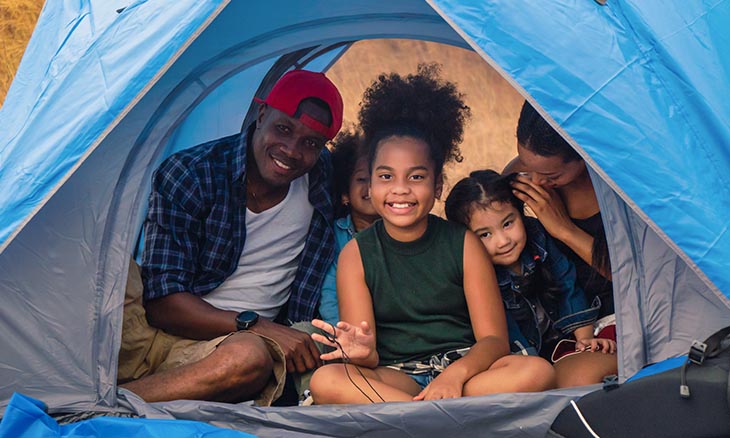
Children's Health
Avoid the Sting of Creepy Crawlers this Summer
While the Itsy-Bitsy Spider rhyme may hold a place in children’s hearts, live insect contact is typically not a positive experience for kids and their parents. Bayhealth Pediatrician Adaobi M. Enekwizu, MD, of Bayhealth Pediatrics, Milford offers tips on how to avoid and cope with the most common creepy, crawly critters in this area. “As a pediatrician, I try to educate parents on how to avoid the prevalent summer insects: mosquitoes, ticks, and bees.” Dr. Enekwizu reminds parents that preventing bites and stings is more pleasant than treating them.
Prevention
- To avoid mosquitoes, Dr. Enekwizu suggests checking areas around the house for standing water where mosquitoes breed. Since mosquitoes are most active at dawn and dusk, she advises limiting time outdoors during those hours.
- Use insect repellants. “They are proven to be helpful.” The EPA and American Academy of Pediatrics recommend a repellant containing DEET for children over age two months. Dr. Enekwizu reminds parents to read labels; DEET concentration should be less than 30 percent. Oil of lemon and eucalyptus are also effective in warding off some insects, but only for children over age 3.
- Apply with caution. Don’t use DEET on the face or under clothing, she warns. Don’t use sunscreen and an insect repellant together. If you are using both on your child, apply sunscreen first, then the repellant. Be sure to reapply sunscreen as needed.
- Protective clothing can be helpful. “Wearing a long-sleeve shirt and pants reduce the exposed skin areas.” For infants in a stroller, protective coverings are available.
Other insects: bees and fleas, for example, also sting and bite. Children should wear shoes or sandals outside, and parents need to be aware of insect nests in the yard.
Remedies
- If your child is bitten by a mosquito or stung by a bee, expect some swelling, and remember simple first aid. Apply cold compresses and one percent hydrocortisone cream to the bite. Children can be given an oral antihistamine, such as Benadryl, and an oral pain reliever, such as Tylenol; check the dosage instructions based on the child’s age.
- When to call the pediatrician: if there’s a fever, or if the redness and swelling spread after the first day. “If you are just concerned, every pediatrician would say ‘Let’s take a look and see.’"
- For ticks: Dr. Enekwizu advises parents to thoroughly check their child from head to toe. If a tick is found, try to think carefully about when it may have first attached. The longer the tick is attached, the greater the risk of acquiring disease from it.
Call Bayhealth Pediatrics at 302-725-3550 for more information or to connect with a Bayhealth pediatrician.
